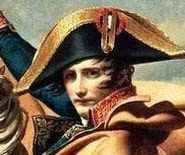
You may have noticed a lack of activity on this blog lately; I've been an irresponsible webcomic author and spending all of my free time lately making a Halloween costume (pictures to follow after a dramatic debut this weekend--I WANT IT TO BE A SURPRISE EVEN THOUGH EVERYONE KNOWS I AM GOING AS DR. GIRLFRIEND) instead of making sketches for your enjoyment. And today, when I finally do draw something it's fan art of The Magic Toyshop, one of the weirdest books I've read in a looooong time. I don't get to read much anymore, since I have no down time ): Fie on being an adult, I say!
The Magic Toyshop, in a nutshell, is a coming-of-age story about 15 year old Melanie, who kills her parents by cavorting through the English countryside at midnight wearing her mother's wedding dress, then shredding the hell out of it climbing an apple tree since she locked herself out like a genius. It gets better. OH, BUT DOES IT GET BETTER. Now an orphan, she and her superfluous younger siblings are sent to London to live with their maternal uncle Phillip Flowers, his wife Margaret, and Margaret's brothers (making them Melanie's uncle-in-laws?) Francie and Finn. They are filthy; their home is a dark hole in the wall of a toy store with no hot water AND EVEN LESS JOY (at least when Phillip the crazed puppet enthusiast is around), and I totally thought this was set in olden times until Finn was wearing a grubby t-shirt and grimy jeans. When Phillip isn't around, it's party time. Or Finn-Macking-on-Melanie-by-a-Broken-Statue-of-Queen-Victoria time, followed by voyeurism! Yay! Did I mention he's technically her uncle, and nineteen?
THEN Phillip decides it would be awesome to put Melanie in his life-size puppet show to be raped by a giant swan on stage (it's art! And a Greek myth!), so he tells Finn to rehearse with her but Finn is all, I AIN'T A PART OF THIS SYSTEM, ALTHOUGH I REALLY DO WANT TO BONE YOU, hides in his brother's wardrobe, and lights up (see illustration). Melanie is all fascinated by his funky stank at this point and is like, CLICHED PHRASES I READ IN A MAGAZINE THAT ONE TIME, and Finn glares derisively out of his sea-blue eyes! Meanwhile, Finn's been trying to get Phillip to murder him so the puppetmaster will be sent to prison and Margaret can be free to talk and dance and wear pants, so he murders the swan after the show in a drunken fit of jealous and pent-up rage. Then he and Melanie spoon.
Wow, this is more than a nutshell. Anyway. Everyone takes a bath, and Finn gets a haircut and Melanie isn't sure how she feels about this new, clean stranger. Phillip comes home to crash the party and set the house on fire when it turns out that Margie and Francie like to get it on on the kitchen floor. Wait, what? So Finn and Melanie escape by breaking into the abandoned jewelry store next door and Francie goes off to break some cuckold-despot-husband kneecaps with an iron pipe. Ha.
The novel ends ambiguously with Finn and Melanie watching the place burn, like Wednesday's boy toy when they torch Camp Chippewa in The Addam's Family Values. It's implied that they'll stay together and punch out many babies (Spoiler: Finn is Irish. Also, apparently he plans to name their first child "Proximity." ...what?), but will Melanie still expect an idyllic romance when Finn continuously fails to deliver in any sort of non-creepy capacity? Will Finn continue his newfound friendship with showers and soap? Will Melanie ever see her younger siblings again (wait, she had siblings?)?!
More importantly, what the fuck just happened? And why did I like it enough to make fanart? (Answer: the scene where Finn smokes in and refuses to get out of the closet is amusing).
This was fun and cathartic! Maybe I'll spice up this blog with more summaries of various media in between sketch posts. Speaking of which, I found this amazing thing over the weekend: The Hunt for the Worst Movie of All Time. Hi-fucking-larious! I hope someone makes this book into a movie for that man to destroy.


